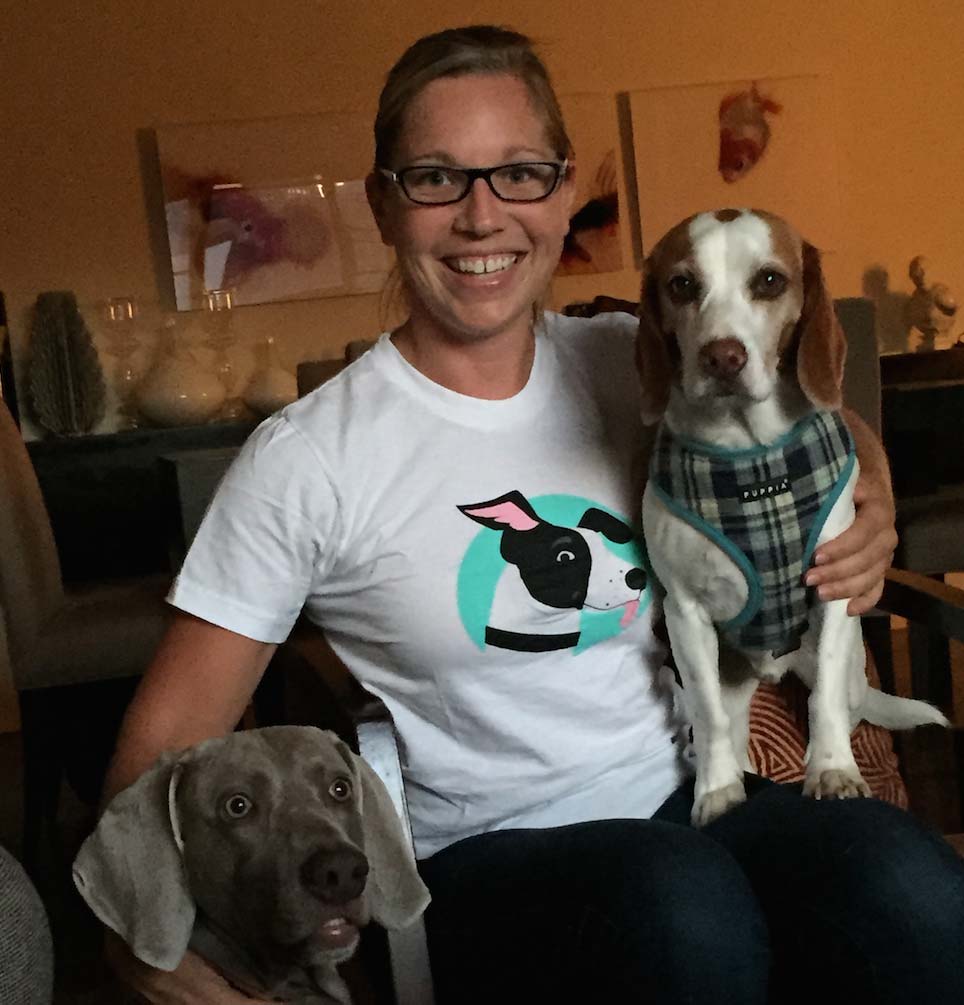Sponsored Content
After too long a hiatus, Five Question for Dr. Moore is back!
Dr. Christina Moore joins us to talk about pursuing a career in veterinary medicine. Dr. Moore is currently the Senior Director of University Relationships and Doctor Mentorship at Thrive Pet Healthcare. Thrive is a network or more than 400 veterinary hospitals across the United States. She is in charge of building relationships with veterinary schools and building mentorship programs for doctors. She was our dog Bodhi’s vet when he was young and was essential in crafting a treatment strategy that saw him survive a very serious life-threating disease. (You can read more about that here.)

According to the St. George’s University vet school, there are seven key characteristics you should consider if you’re thinking about becoming a veterinarian. You should be a “people person”; have a strong sense of responsibility; have a knack for business; be a lifelong learner; be patient; have perseverance; and never have pictured yourself doing anything else.
It’s a tough job, but ultimately a very rewarding one. I have a tough time thinking of anything better than helping animals!
So let’s jump in and chat with Christina.
Urban Dog: Why did you originally decide to become a veterinarian?
Dr. Moore: When I was 16 years-old I working worked at local vet’s office. The doctor there was so great at getting to know his clients. It wasn’t just about the pets, it was also about the people. I really admired that and thought how great it would be to have a job like that. Later on, when thinking about college, I felt a need to get a degree which defined my job. Once I graduated, I knew what I was going to be: a veterinarian. And event though I am not a practicing vet today, I still describe myself as a vet.
Urban Dog: What was one of your best moments as a vet?
Dr Moore: Hands down, treating your dog Bodhi. It was so rewarding to see your dog live a happy and healthy life after suffering such a terrible disease as a puppy. It’s the coolest thing for any vet when a patient is close to death and they can help that animal live for another eight or nine years.
Urban Dog: What is the biggest challenge facing vets today?
Dr Moore: The shortage of veterinarians and vet technicians. This shortage exasperates all of the other challenges facing people in the field: stress, financial issues, mental health issues, and so on.
Urban Dog: How can veterinarians face those challenges?
Dr Moore: The biggest thing vets can do is to reach out and seek help. The company I work for, Thrive, and others provide counseling and support. It’s important for veterinarians to understand that they are not alone.
Urban Dog: What single piece of advice would you give someone starting out in a career on veterinary medicine.
Dr Moore: I would advise them to seek out strong mentors and then actively work to maintain those relationships throughout the years. Mentors can provide support, be a guide, and be an sounding board.
If you’re interested in learning more about Thrive, visit their website.
And if you thinking about becoming a vet, check out the American Veterinary Medical Association’s list of accredited veterinary colleges.
And New Yorkers, if you’re looking for a job as a vet, check out a job search website, like Jooble.






